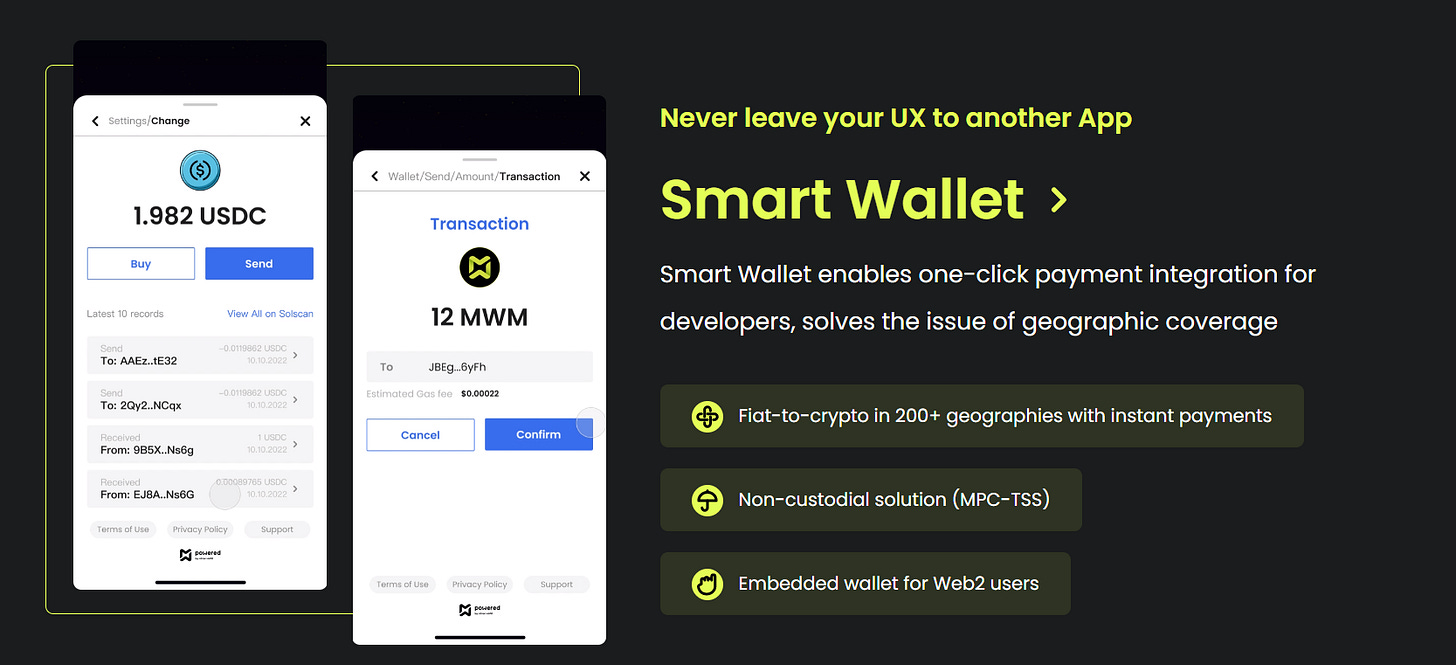A MPC wallet, also known as a multi-party computation wallet, is a type of cryptocurrency wallet that uses advanced cryptographic techniques to securely store digital assets.

What is A MPC Wallet?
Unlike traditional wallets, which rely on a single user to generate and manage the private keys that grant access to the funds, MPC wallets use a combination of multiple private keys to provide enhanced security and protection against theft or loss.
At the core of a MPC wallet is the concept of multi-party computation, a cryptographic technique that allows multiple parties to jointly compute a function without revealing their inputs to each other.
In the context of a MPC wallet, multiple private keys are generated and distributed among different parties, who must all agree to sign a transaction before it can be processed on the blockchain.
This means that even if one of the parties is compromised, the funds in the wallet remain safe as long as the other parties do not agree to sign the transaction.
Security
One of the key benefits of using a MPC wallet is that it provides an additional layer of security against hacking and other forms of cyber attacks. Because the private keys are distributed among multiple parties, a hacker would need to compromise all of them in order to gain access to the funds in the wallet.
This makes it significantly more difficult for attackers to steal the funds, as they would need to overcome the combined security measures of multiple parties.
Another benefit of MPC wallets is that they allow for greater control and flexibility over the management of digital assets. With traditional wallets, the user is solely responsible for managing their private keys and securing their funds.
This can be a daunting task for many people, and a single mistake or oversight can result in the loss of funds. With a MPC wallet, however, the private keys are managed by multiple parties, which can help to reduce the risk of human error and improve overall security.
Zero-Trust
In terms of asset management efficiency, MPC technology allows parties to collaborate on a computation without having to trust each other. This can be useful in situations where the parties may not know or trust each other, or where there is a risk of malicious behavior.
For example, in a distributed ledger system, multiple parties may need to jointly compute a function in order to reach a consensus on the state of the ledger. Without the zero trust feature of MPC, the parties would have to trust each other to not collude or cheat in order to reach a correct consensus.
With MPC, however, the parties can securely compute the function without having to trust each other, which can help to ensure the security and integrity of the ledger.
In conclusion, a MPC wallet is a highly secure and flexible way to store digital assets. By leveraging the power of multi-party computation, it provides enhanced protection against hacking and other forms of cyber attacks, while also offering greater control and flexibility over the management of funds.
If you are looking for a secure and reliable way to implement crypto wallets into your application or projects, MPC wallet is definitely the type of technology you want to look into.
If you are interested in Mirror World Smart SDK, please check the following links:
Website: https://mirrorworld.fun/developer
Twitter: https://twitter.com/mirror_matrix
YouTube: https://www.youtube.com/channel/UC9NkOWpL_b2kotDBmtE98dw







